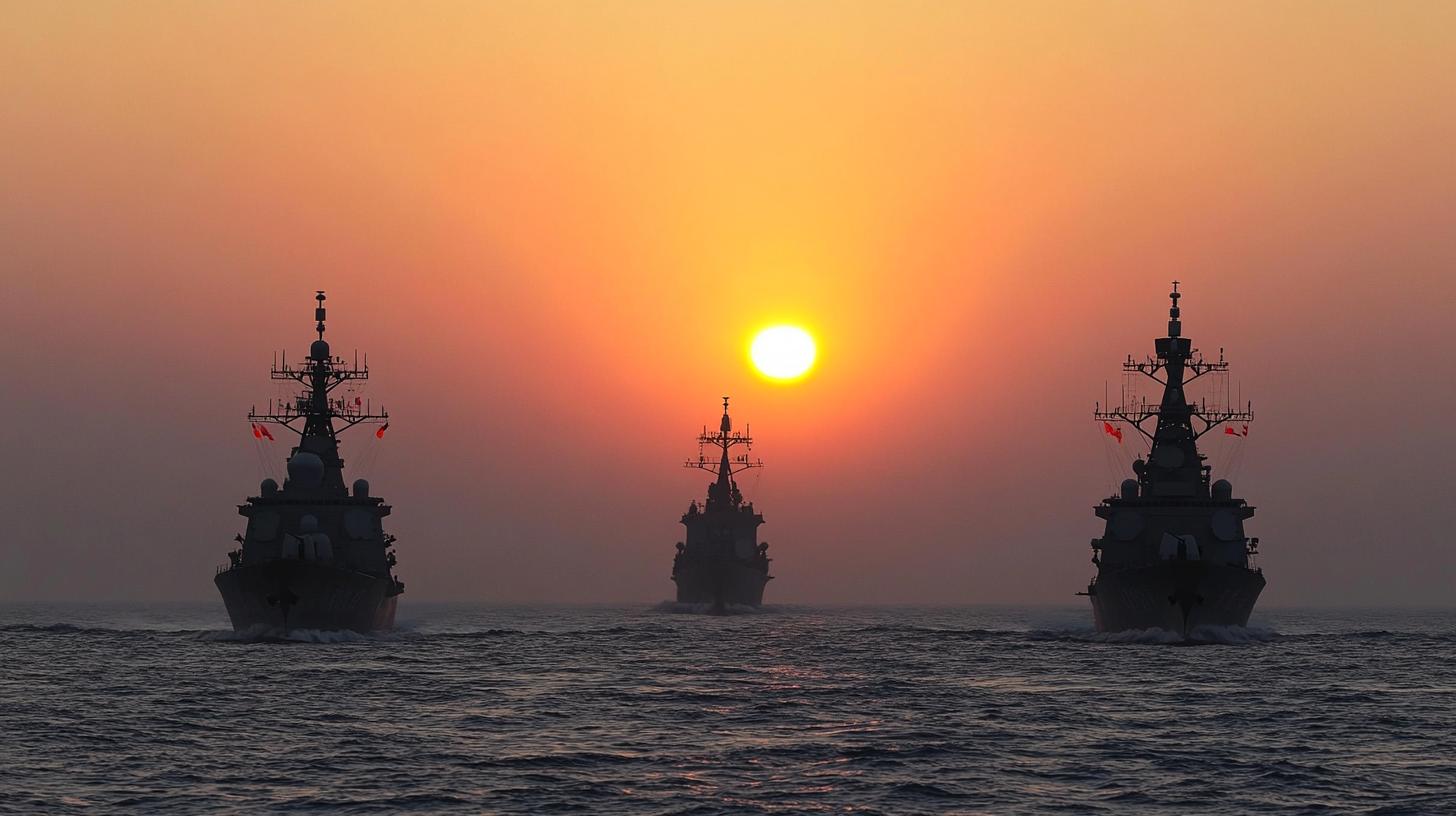In a significant military move, American F-15 fighter jets have landed in the Middle East, according to a recent statement by the U.S. military. This deployment follows Washington’s announcement to increase its military presence in the region, signaling a warning to Iran.
Bolstering Forces in the Middle East
On Thursday, F-15E Strike Eagles from the 492nd Fighter Squadron, based in RAF Lakenheath, England, arrived in the U.S. Central Command’s designated area. The strategic deployment, shared via social media by the military command overseeing Middle Eastern operations, underscores the U.S.’s commitment to regional stability.
The United States revealed on November 1 its plans to send additional military equipment, including bombers and tanker aircraft, along with ballistic missile defense ships, to reinforce its stance in the Middle East. A Pentagon representative emphasized that the U.S. is prepared to defend its personnel and interests should Iran or its affiliates consider any hostile actions.
Escalating Tensions in the Region
Recent tensions have escalated following strikes by Israel on October 26, targeting Iranian military sites but intentionally avoiding critical nuclear and petroleum infrastructures. Iran has promised to retaliate, accusing Israel of attacks, including a strike on its consulate in Damascus and the killing of allied group leaders.
In 2024, Iran launched two significant assaults against Israel, with the most recent incident in October, presenting a continual threat of conflict. As these developments unfold, the region watches closely the implications of the increased U.S. military presence.
Unexpected Ripples: How the U.S. Military Build-Up in the Middle East Affects Everyday Lives
In light of recent developments where American F-15 fighter jets have been deployed to the Middle East, it’s crucial to delve deeper into the broader implications this military strategy could have on everyday lives, communities, and international relations.
Regional Impacts and Community Concerns
The dramatic surge in military presence has a far-reaching impact, particularly on countries in the Middle East. Local populations in countries like Iraq and Syria, which have historically been hotspots for military action, may experience heightened insecurities. Increased military activities often lead to restricted movement, economic disruptions, and in some cases, displacements, as seen in many previous military campaigns.
Communities near military bases may witness economic booms due to increased demand for goods and services, driven by military personnel and operations. Conversely, such surges in military activity can result in resource strain and increased prices for local goods. This dynamic can create tensions within communities, influencing local economies and social structures.
Global Tensions and Political Dynamics
The decision to bolster U.S. forces is not without its controversies. Questions arise about the long-term goals behind such deployments. Critics argue that increasing military presence may perpetuate a cycle of tension and conflict, while proponents believe it is a necessary step to ensure regional stability and deter aggression from actors like Iran.
This development also pressures allied countries to take clear stands, potentially deepening the longstanding divides between pro-Western and anti-Western sentiments. It can strain diplomatic relationships, especially for neighboring Arab countries, forcing them to navigate a complex web of alliances and oppositions.
Environmental and Social Implications
Military deployments at this scale bring environmental concerns. The operations involve extensive use of resources and could lead to environmental degradation, threatening the livelihoods of those who depend on local agriculture and fisheries.
Socially, the psychological toll on both local populations and military families cannot be ignored. Military families face anxiety regarding the safety of deployed loved ones, while local communities live under the constant specter of conflict, affecting mental health and societal morale.
Advantages and Disadvantages of Military Build-Up
Advantages:
– Deterrence: Increased military presence acts as a deterrent against hostile actions, aiming to prevent potential conflicts.
– Security for Allies: Provides a security umbrella for allies in the region, potentially fostering stronger diplomatic ties.
Disadvantages:
– Escalation Risk: There’s a risk that increased military presence may escalate tensions, rather than defuse them.
– Resource Strain: Significant allocation of financial resources can steer attention away from domestic issues in the U.S., impacting social services and infrastructure investments.
Questions and Answers
Q: How might the deployment affect oil prices globally?
A: Fluctuations in regional stability often impact oil supply routes through the Middle East, usually leading to increased oil prices globally, highlighting the critical economic impact of such military operations.
Q: Is there a historical precedent of such deployments influencing peace talks?
A: Military build-ups have often been used historically as leverage in diplomatic negotiations, though with mixed results. They can sometimes lead to peace talks under the pressure of potential conflict, but equally, they can entrench positions, making diplomacy more challenging.
For further information on regional military strategies and U.S. foreign policy, explore U.S. Department of State and U.S. Department of Defense websites.







